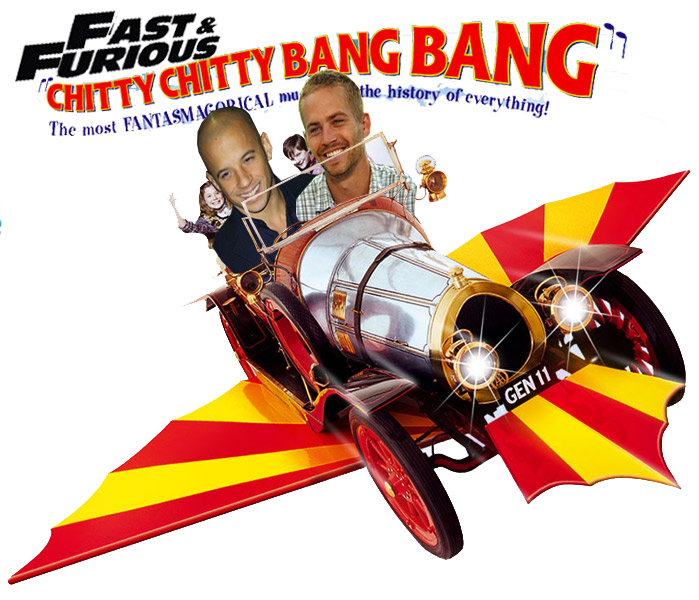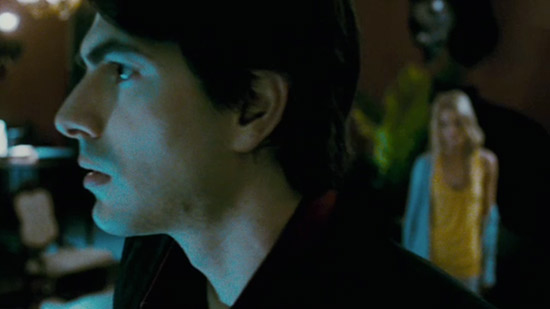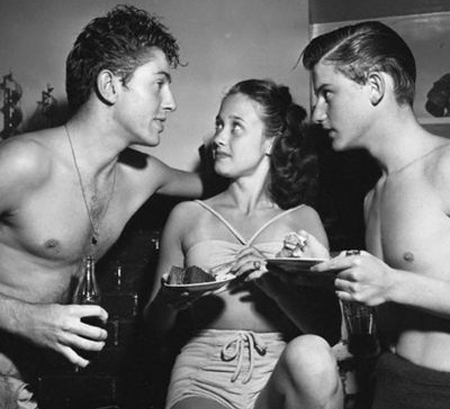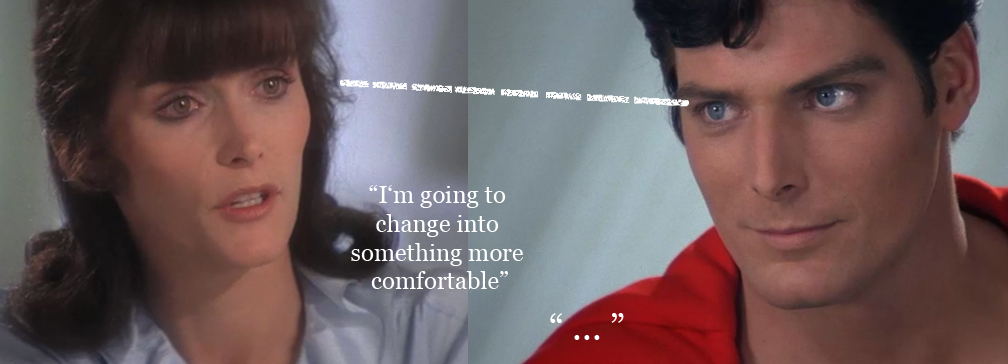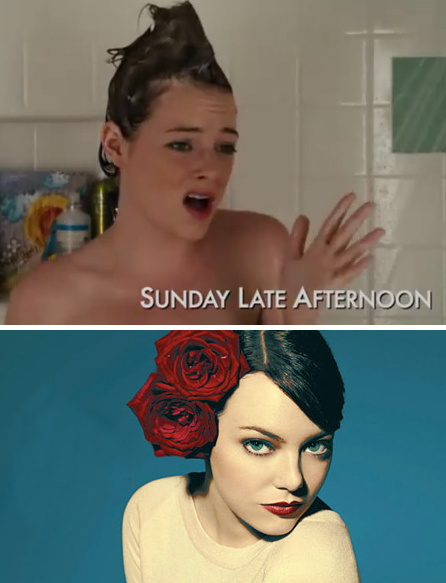Stage Door: Marisa Tomei vs. Julianne Moore
 Monday, May 2, 2011 at 4:42PM
Monday, May 2, 2011 at 4:42PM Stage Door will now be a weekly Tuesday series featuring Nathaniel's (or other contributors') theatrical adventures and, as often as possible, how they do connect or could connect with the cinema. So pardon this Monday entry, and subsequent double dip, but 'tis the season; we'll do this again tomorrow for the Tony Award Nominations! But today... a few notes on Marie & Bruce, the current revival of the play with Marisa Tomei (it closes this coming weekend) and the movie version with Julianne Moore.
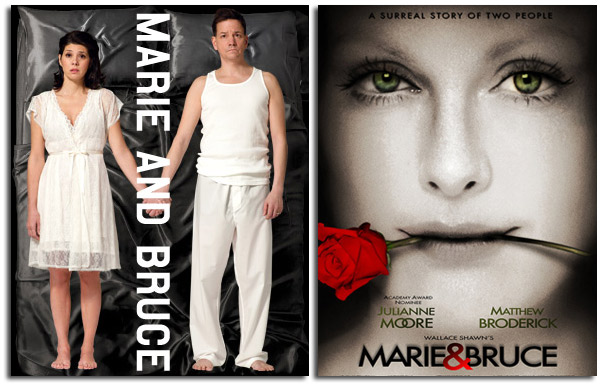
I mentioned the play briefly before. It opens with Marie and Bruce in bed. Marie is unable to sleep and proceeds to talk herself in circles, spewing bile towards her sleeping husband whom she apparently hates and plans to leave that very day. She tells us about his prized typewriter which she threw away and complains that it's a hot summer, they've both had the flu, and neither of them have jobs. After she wakes him, she emasculates him repeatedly while he tries to make coffee and dress for a lunch date. You get the sense that she's Martha but he's not George --- a one sided Virginia Woolf (not that this play is a qualitative match but, then again, what is?). Instead of fighting back, he merely says "well darling" this and "well darling" that, smothering her with verbal affection which she returns with mocking bile.
The play is staged superbly in its current revival with a gorgeously flexible set which, with only minor adjustments, acts as the couple's bedroom, the dining room of a friend's party, and a romantic cafe. (It's basically a mini three-act play performed without intermission. Both Marie and Bruce are hard to get to know but you still feel for them since they seem so ill at ease in all three environments. Or at least Marie does. The constant fourth-wall breaking monologues, which generally feel natural in theater settings and too affected in movies (and Marie and Bruce is no exception), help win you over to the harsh characters.
Throughout the entire second act, the party, you become privy to snippets of conversations from each partygoer. It's the best part of the play, staged ingeniously with a rotating set as if you're circling the party and drifting from conversation to conversation as people actually do at parties. Strangely, or perhaps ingeniously, the key to Marie's character seems to be one of these offhand conversations.
In the movie version, Marie (Julianne Moore) seems entirely stoned during the party sequence -- not just confused about her own feelings -- but she leans in to this particular party profundity (monday monologue alert!), bewildered but cognizant that she should understand it. And feels immediately sick thereafter.
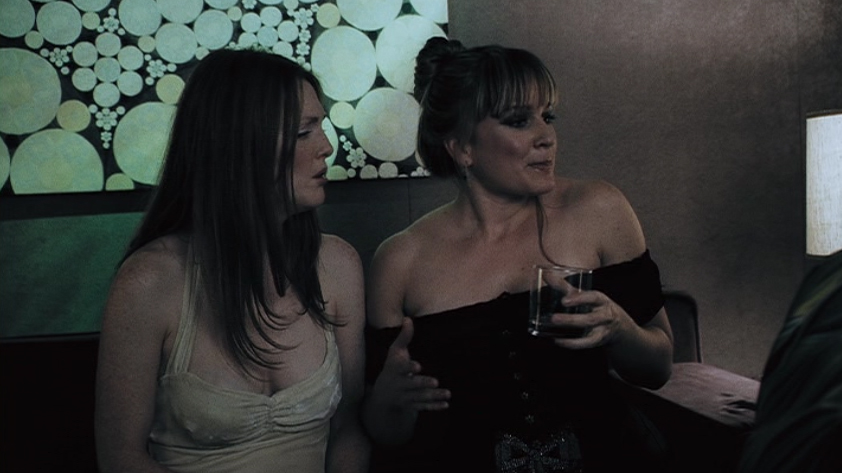
Woman at Party: I understand what you're saying but isn't it possible for sometimes people to not feel what they actually do feel? Do you know what i mean?
I mean they may actually feel a certain thing but they don't really know that they do because
in their own conscience minds they're so incredibly involved in what they think that they feel that they don't really feel the thing at all. Do you see what i'm saying?
I mean like, for example, a very common example is when you're supposed to feel pleased by something thing like when somebody gives you a present and you're supposed to feel pleased but actually you don't because the thing is something that actually you hate or you actually already have the thing. But you're not supposed to say 'Well, I really hate this.' You're supposed to say 'oh boy that's great I really like it.'
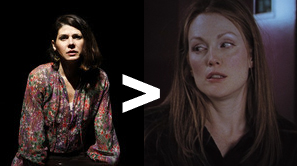 Julianne Moore has always had a gift with neurosis and her best characterizations tends to involve women who are lost to themselves through self delusion, mental illness, or societal mores (See: Amber Waves, Cathy Whitaker, Carol White, Laura Brown, etcetera). In theory Marie -- who seems very decisive only to gradually reveal herself to be confused and paralyzed -- is a perfect match for her gifts but it's actually Marisa Tomei who wins this round. It helps a lot that her vehicle is better all around and has more precise ideas about how Marie will interact with the audience; the movie can't seem to make up its mind about how much of a storyteller Marie should be or whether or not she should stare directly at the camera and break the fourth wall. But there is something in Tomei's gabby everywoman sensuality, and instant relatability that trumps the character's offputting nature. Marie is still an incredibly unhappy woman spreading her misery around -- Tomei doesn't sugarcoat it -- but she's somehow more sympathetic. Moore, with her inarguable star allure is maybe too much of a presence -- unwittingly closing the already impenetrable character off even further.
Julianne Moore has always had a gift with neurosis and her best characterizations tends to involve women who are lost to themselves through self delusion, mental illness, or societal mores (See: Amber Waves, Cathy Whitaker, Carol White, Laura Brown, etcetera). In theory Marie -- who seems very decisive only to gradually reveal herself to be confused and paralyzed -- is a perfect match for her gifts but it's actually Marisa Tomei who wins this round. It helps a lot that her vehicle is better all around and has more precise ideas about how Marie will interact with the audience; the movie can't seem to make up its mind about how much of a storyteller Marie should be or whether or not she should stare directly at the camera and break the fourth wall. But there is something in Tomei's gabby everywoman sensuality, and instant relatability that trumps the character's offputting nature. Marie is still an incredibly unhappy woman spreading her misery around -- Tomei doesn't sugarcoat it -- but she's somehow more sympathetic. Moore, with her inarguable star allure is maybe too much of a presence -- unwittingly closing the already impenetrable character off even further.
The play: B; The movie: C-; The current revival: B+/A-
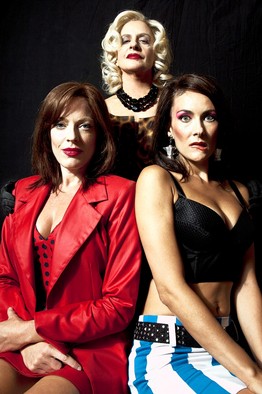 Stage Door
Stage Door
Drama Desk Nominees announced. Color me very surprised that all three principles from Women on the Verge... got nominated: Sherie Rene Scott, Patti Lupone and Laura Benanti (pictured left). Only Benanti as the ditzy chatterbox who sleeps with a terrorist thrilled the audience the night I attended; the musical was no match for the Almodóvar source material.
Gold Derby has the Drama League nominees. I served one year on the nominating committee several years ago and it was a ton of fun (they have a rotating civilian section of the nominating committee)
Back Stage Blog Stage Seems that Sutton Foster (one of our favorites) and Bobby Canavale (The Station Agent, Will & Grace) are now an item.
Kritzerland Camelot's original London cast recording from 1964 is getting released this summer. Laurence Harvey instead of Richard Burton as King Arthur! [gasp]
La Daily Musto lists a very odd assortment of his fav "11th hour" Broadway Musical numbers. He seems to have a very loose definition... but there's absolutely no beating "LOT'S WIFE" from Caroline or Change. I saw that show twice and both times I thought I was going to explode inside it was so moving.



